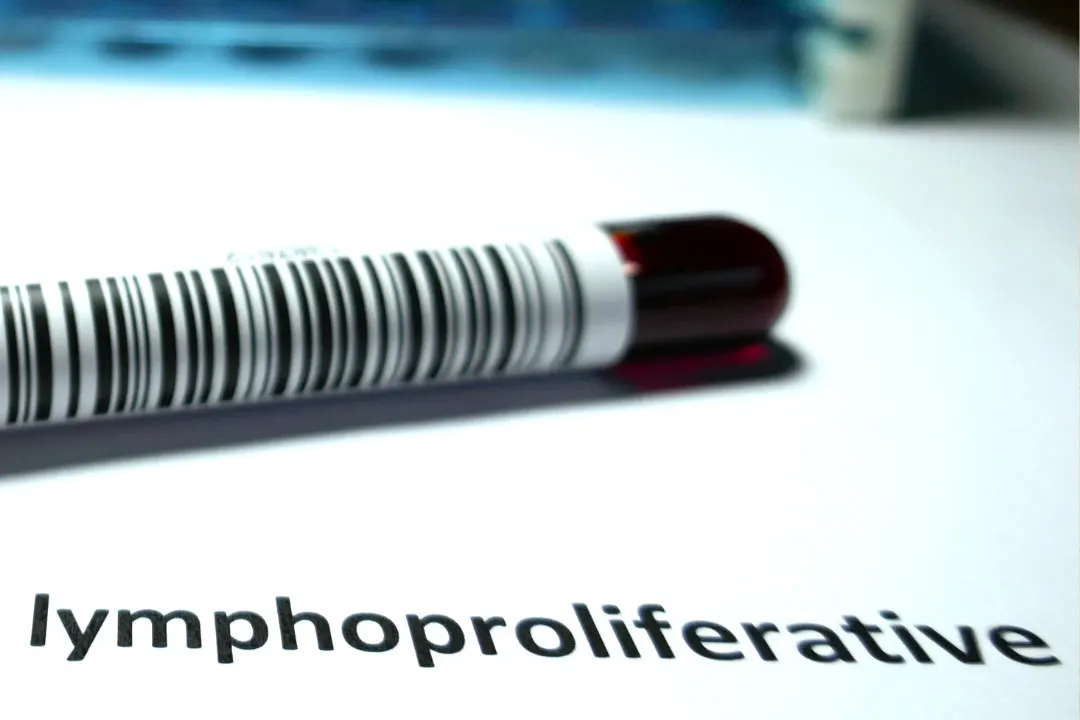Description
Autoimmune lymphoproliferative syndrome (ALPS) is a primary immunodeficiency illness that impairs lymphocyte homeostasis and causes abnormal lymphocyte buildup. Germline mutations impacting the lymphocyte apoptosis genes FASL, FAS, and CASP10 are the main contributors to ALPS. Due to this disturbance, auto-reactive cells are not properly cleared, and immunological tolerance is subsequently lost. Lymphoproliferation, autoimmune symptoms, and an elevated risk of lymphoma development are the hallmarks of ALPS. Splenomegaly, lymphadenopathy, autoimmune cytopenias including autoimmune hemolytic anemia and immune thrombocytopenia, and increased double-negative T cells (CD3+CD4-CD8-) are common clinical findings. Clinical observations, flow cytometry assessment, and genetic testing are used to make the diagnosis.
You May Also Like:
5 Great Reasons to Try Herbs for Digestion
Tackle Acne Naturally: 5 Reasons to Switch to Herbal Skin Care
Autoimmune Lymphoproliferative Syndrome (ALPS): Description, Causes, And Treatment Protocol is an original (HealthXWire) article.
Possible Causes
Genetic abnormalities affecting genes associated with lymphocyte apoptosis are the cause of autoimmune lymphoproliferative syndrome (ALPS), which results in immunological dysregulation. The genes linked to ALPS and the corresponding mutations are listed below:
FAS Gene Mutations or FAS Type Ia ALPS:
The FAS gene, which produces the FAS receptor protein, is where ALPS is most frequently brought on by mutations. To maintain immunological homeostasis, the FAS receptor causes lymphocytes to undergo apoptosis or programmed cell death. FAS receptor function is compromised as a result of FAS gene mutations, which cause a buildup of auto-reactive cells and poor lymphocyte apoptosis.
FASL Gene Mutations or FASL Type Ib ALPS:
ALPS can be brought on by mutations within the FASL gene, which produces the FAS ligand protein. Target cells undergo apoptosis when a protein called a FAS ligand attaches to the FAS receptor. Defective lymphocyte apoptosis results from mutations in the FASL gene, which disrupt the interaction of the FAS ligand with the FAS receptor.
CASP10 Gene Mutations or CASP10 Type II ALPS:
Rarely, ALPS can result from CASP10 gene mutations. The protein caspase-10, which is encoded by CASP10, is essential within the FAS-mediated apoptotic pathways. Caspase-10 function is compromised by mutations in CASP10, which results in ALPS expression and improper lymphocyte apoptosis.
Not all instances of ALPS are linked to mutations within identified genes. . Instead, ALPS represents a heterogeneous genetic background. Without recognizable mutations within these genes, some people may exhibit ALPS-like symptoms, pointing to the possibility of other genetic variables that have not yet been fully understood.
Since ALPS is primarily inherited autosomally , it only requires a mutation within a single copy of the affected gene that is acquired from either parent to result in the disorder. Nevertheless, unplanned mutations can also happen.

Exacerbating and Mitigating Factors
A variety of attributes can have an influence on autoimmune lymphoproliferative syndrome (ALPS), increasing or reducing its symptoms. The following are some important ALPS aggravating and reducing factors:
Stress:
The escalation of autoimmune symptoms in ALPS is linked to psychological stress. Techniques for reducing stress, like mindfulness, relaxation exercises, and counseling can mitigate its effects.
Infections:
The lymphadenopathy and splenomegaly that ALPS patients experience can be made worse by viral infections like the Epstein-Barr virus (EBV), which can also cause lymphocyte proliferation. To decrease the influence of infections on ALPS symptoms, infections must be promptly identified and treated.
Medications:
Anticonvulsants and sulfonamides are two drugs that have been observed to cause or exacerbate ALPS symptoms. If you are someone with ALPS, you must inform your healthcare practitioner about your illness to prevent a potential aggravation.
Stress Management:
Yoga, meditation, and counseling are all stress-reduction methods that can lessen the effects of psychological strain on the symptoms of ALPS. It may be helpful to establish constructive coping techniques and seek expert assistance.
Infection Management:
Infections can negatively affect ALPS symptoms, but they can be lessened with timely diagnosis and treatment, such as prompt antiviral therapy when viral infections are present.
Trigger Avoidance:
Finding triggers that intensify ALPS symptoms and reducing exposure to them can be helpful. Avoiding some drugs known to exacerbate ALPS or allergens known to cause autoimmune reactions might be necessary to achieve this.


Standard Treatment Protocol
The conventional ALPS treatment seeks to control autoimmune symptoms, minimize lymphocyte proliferation, and keep an eye on lymphoma progression. The following comprise the main elements of the typical therapy protocol:
Immunosuppressive Medications:
- Corticosteroids
To reduce immunological activity and manage autoimmune cytopenias, prednisolone or prednisone is frequently utilized.
- Sirolimus
Sirolimus, also referred to as rapamycin, inhibits T-cell activation and can decrease lymphoproliferation.
- Mycophenolate mofetil
This drug can be utilized as a steroid substitute since it prevents lymphocyte proliferation.
Splenectomy:
Surgery to remove the spleen can be an option to improve blood levels and treat symptoms if you have significant refractory cytopenias or splenomegaly.
Monitoring for Lymphoma: To catch lymphoma in its earliest stages, it is crucial for you to follow laboratory testing, full blood counts, and imaging techniques like computed tomography (CT) or ultrasound.


Treatment Options
To assist conventional care, adjunct therapies, and supplementary strategies may be taken into consideration in addition to the regular treatment protocol. The effectiveness and safety of such adjunct therapies in ALPS need more investigation and clinical testing. You need to research the following complementary treatment choices:
Prescription Medications:
- Rituximab
The formation of autoantibodies and lymphoproliferation may be decreased by this monoclonal antibody because it targets specifically CD20 on B cells.
- Tocilizumab
A potential treatment for your ALPS’s inflammatory signs that target the interleukin-6 receptor.
Over-the-Counter Formulations:
- Nonsteroidal Anti-Inflammatory Drugs or NSAIDs
Ibuprofen and naproxen, both NSAIDs, help control the pain and inflammation brought on by ALPS symptoms.
- Antihistamines
Several ALPS patients may find these drugs helpful in reducing allergy or hypersensitivity reaction symptoms.
Nutritional Supplements:
- Antioxidant Supplements
Selenium, vitamins E and C, and coenzyme Q10 are antioxidants that fight inflammation and oxidative damage. In ALPS, oxidative stress plays a role in immunological dysfunction and tissue damage. Supplementing with antioxidants must be individualized and supervised by your healthcare specialist.
- Vitamin D
The regulation and modulation of the immune system is linked to adequate vitamin D levels. According to research, taking vitamin D supplements can boost immune system health and lessen inflammation in autoimmune diseases. It is important to regularly check vitamin D levels to guarantee the best dose.
- Omega-3 Fatty Acids
Fish oil and flax seed oil contain omega-3 fatty acids, which are anti-inflammatory and can decrease the severity of autoimmune symptoms. These fatty acids might influence immunological responses and support the immune system to function effectively. Omega-3 supplementation must be reviewed with your healthcare professional, while taking into account elements like dosage, potential drug interactions, and your specific requirements.
- Probiotics
Probiotics comprise helpful microorganisms that may improve immune function and help maintain a balanced microbiome in the gut. Given that gut dysbiosis is linked to immunological dysregulation, as an ALPS pateint, you can benefit from a probiotic supplement to support your gut health. Discussing probiotic types, dosage, and supplementation duration with your healthcare provider is recommended.
Natural and Herbal Remedies:
- Dietary Modifications
For general wellness and immunological function, a well-balanced, nutrient-rich diet is crucial. Whole foods, such as fruits, vegetables, lean meats, and whole grains, must be included in your diet. To guarantee optimal nutrient consumption and accurately personalized dietary advice, working with a licensed dietitian can also be helpful.
- Curcumin (Curcuma longa)
Turmeric, a spice frequently used in Indian food, contains curcumin as its most active ingredient. It demonstrates antioxidant and anti-inflammatory properties and assists in regulating immunological responses. Curcumin has demonstrated potential in a number of autoimmune disorders, but further studies are required to determine how effective it is in ALPS.
- Astragalus (Astragalus membranaceus)
Traditional Chinese medicine frequently use the plant astragalus. It has both immune-modulating and anti-inflammatory properties. While several research have raised the possibility of immune modulation benefits, there is little concrete proof that it works in ALPS.
- Green Tea
Polyphenols found in green tea possess anti-inflammatory and antioxidant effects. While its implications on ALPS are uncertain, it has some immunological benefits.
- Echinacea
Echinacea improves immune function and lessens inflammation, according to research. However, its effects on ALPS have not been studied.
- Cat’s Claw (Uncaria tomentosa)
According to research, cat’s claw has proven to have antioxidant and immunomodulatory benefits. There is little information on its application in autoimmune disorders.
- Mind-Body Practices
Exercises that deepen breathing, including yoga and meditation, can help reduce stress and improve your general health. They can help with stress management and overall wellness, even though they cannot directly treat ALPS.


Conclusion
Before contemplating any adjunct therapy or complementary techniques, if you are a sufferer of ALPS, you must speak with your healthcare practitioners. Your body has very specific and unique demands that should be taken into consideration while developing your treatment plan, and its efficacy and any potential side effects should be routinely checked. There is limited research and development on treating ALPS, so it is not recommended that you try to take any supplements on your own without a dietician or doctor’s advice.
Additional resources for further reference
https://www.niaid.nih.gov/diseases-conditions/autoimmune-lymphoproliferative-syndrome-alps
https://emedicine.medscape.com/article/1663330-overview
https://medlineplus.gov/genetics/condition/autoimmune-lymphoproliferative-syndrome/#causes
Important Note: The information contained in this article is for general informational purposes only, and should not be construed as health or medical advice, nor is it intended to diagnose, prevent, treat, or cure any disease or health condition. Before embarking on any diet, fitness regimen, or program of nutritional supplementation, it is advisable to consult your healthcare professional in order to determine its safety and probable efficacy in terms of your individual state of health.
Regarding Nutritional Supplements Or Other Non-Prescription Health Products: If any nutritional supplements or other non-prescription health products are mentioned in the foregoing article, any claims or statements made about them have not been evaluated by the U.S. Food and Drug Administration, and such nutritional supplements or other health products are not intended to diagnose, treat, cure, or prevent any disease.
Table of Contents


